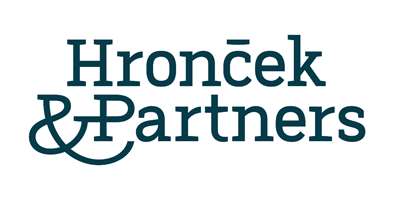As we mentioned in previous articles, family businesses play a key role in Slovakia's economic structure, accounting for a significant number of business entities in the country. In today's dynamic business environment, many family businesses are looking for effective ways to manage and protect their assets, especially in cases of intergenerational transfer. One such solution is the creation of holding structures. Holding companies allow for centralized management, tax optimization, and protection of family assets, but there are certain legal and practical limitations that may affect their suitability or adequacy. In the following article, we will therefore focus on the advantages of holding companies and their limitations, while also pointing out the possibilities offered by Czech law in the form of trust and endowment funds.

Holding structures, their purpose and advantages under the legal system of the Slovak Republic
When creating a holding structure, it is necessary to proceed on a case-by-case basis, as the structure of the whole, the legal setup and the transformation process itself always depend on the specific nature of the business, the number of family members and the assets the will of the clients and the extent to which individual family members wish to participate in the family business.
A holding structure is essentially a structure in which the "parent company" manages and controls the "subsidiary companies," with a certain degree of separation within that structure so that that in the event of an adverse situation affecting one "subsidiary," the other "subsidiaries" or the "parent company" itself, through which the family members control the entire holding, are not endangered. The "parent company" may be owned by other private holding companies and funds of individual business partners and their families.
The purpose of the holding structure is primarily to consolidate assets, mainly to protect them from negative external influences, such as exhausting administrative proceedings by state authorities or disputes with business partners. In addition to external risks, the consolidation of family assets in the form of a holding structure also provides protection against risks arising from the internal environment of the company or the family, such as the settlement of joint ownership between spouses or the death of a family member. This can trigger a lengthy and undesirable process that will ultimately lead to the fragmentation of family assets and the involvement of other people, who may not even be family members, in the family business.
Another significant advantage of a holding structure is the establishment of property relations between individual family members, which will be reflected in subsequent remuneration or dividend payments. In this context, it should be noted that that by creating a holding structure and, at the same time, a family constitution and family council, it is also possible to establish personal relationships between individual family members, thereby preventing disputes when employing family members, making important decisions within the family business, and setting further goals.
Within the holding structure, it is possible to effectively collect funds from all subsidiaries and subsequently reinvest them within the entire structure, which brings significant advantages, especially in the area of legal tax optimization, which we will discuss in a separate article together with our partners. The holding company, or "parent company," can thus redistribute profits among its subsidiaries according to their needs, whether for development, to cover operating costs, or for further strategic investments, which increases the efficiency of capital management within the holding structure.
The holding structure also brings with it a number of other advantages, including in relation to the external environment or third parties, as the holding structure not only provides a certain degree of anonymity, but also attracts additional investors and increases the credibility of its contractual partners.
Limitations of Slovak legislation and opportunities offered by the jurisdiction of the Czech Republic
One of the main shortcomings or limitations of Slovak legislation is the absence of specific types of legal entities or entities with their own legal personality that would be specially designed for family businesses for the purpose of creating a holding structure. Currently, family businesses can only operate within existing legal forms, such as limited liability companies (s. r. o.) or joint stock companies (a. s.), which are also among the most commonly used legal forms. These classic types of commercial companies do not always reflect the unique needs and characteristics of family businesses, as well as the requirements of family business founders, such as:
Flexibility of current legal forms: Each of the existing legal forms of legal entities regulated by law has certain advantages and disadvantages, and the advantages of these individual legal forms cannot be combined according to the requirements of the founders of family businesses and individual family members or family businesses.
Legal protection of family assets: Many founders of family businesses are looking for ways to protect their assets and ensure their transfer to the next generation, in particular by providing the next generation with a regular income from the family business. However, as mentioned above, the current legal forms do not always reflect the requirements of the founders and members of family businesses, nor do they always provide sufficient protection against the external and internal risks that family businesses face during their existence.
Given certain limitations of Slovak legislation on the establishment and management of family holding companies, many founders of family businesses are turning to the options offered by the Czech Republic, particularly in the area of trust funds. The Slovak Republic does not offer such an option, which significantly limits the flexibility of family businesses in protecting and managing their assets. Trust funds, which operate as a separate legal institution in the Czech Republic, represent another option for managing family assets and offer more flexible options for long-term family asset management, most often used as an add-on within family holding companies. Within trust funds, family assets are set aside separately for a specific purpose and for a specified period of time, and these separately set-aside assets are not subject to inheritance proceedings. which is set aside for a predefined purpose and for a specified period of time, and such separately set-aside assets are not subject to inheritance proceedings and cannot be used to satisfy creditors' claims arising from the family business. The main purpose of a trust fund or trust management is to keep family assets together for future generations and prevent them from being fragmented.
Another option for asset management is endowment funds, which are also available under Czech jurisdiction but cannot yet be established in Slovakia. Like trust funds, endowment funds offer further possibilities for the effective and flexible management of family assets, whereby, as with trust funds, a certain amount of assets is set aside for a specific, predefined purpose, which can then be used to support and secure the needs of current and future family members.
However, there are certain differences between trust funds and endowment funds. Endowment funds are more flexible than trust funds, which brings certain advantages, for example, when changing the founding documents created at the time of establishment, as well as when disposing of foreign bank accounts, which naturally brings certain advantages. Certain differences can also be found in the tax treatment, particularly when paying dividends from Slovak companies, as in some cases income from business activities in the form of dividends can be transferred to an endowment fund with almost zero taxation. Among other things, unlike a trust fund, an endowment fund is a legal entity and has separate legal personality, which ultimately means that it can be established for an indefinite period, which is not possible with a trust fund. On the other hand, however, endowment funds do not offer the same degree of anonymity as trust funds, which do not need to have a registered office.
Based on the above, it appears that the jurisdictions of Slovakia and the Czech Republic offer several options for protecting and managing family assets for future generations, while the legal system of the Czech Republic offers, in addition to trust and endowment funds, certain differences within the framework of common forms of companies, which in turn may represent certain options for some founders of family businesses and family members to meet their specific requirements.
When looking for the best solution, you shouldn't forget about other options offered by legal systems outside the Czech Republic and Slovakia, both within the European Union and in other countries. In our experience, several clients have opted for jurisdictions in other countries, such as Luxembourg or Malta, whose legal systems best suit the specific requirements of the client in question, also taking into account the development of the situation in Slovakia and the future functioning of the family business. Our law firm Hronček & Partners, s. r. o., operates within the international organization Ally Law, which brings together leading law firms from around the world, enabling us to meet our clients' requirements in cooperation with our partners in such a way that they are translated into reality as much as possible.
